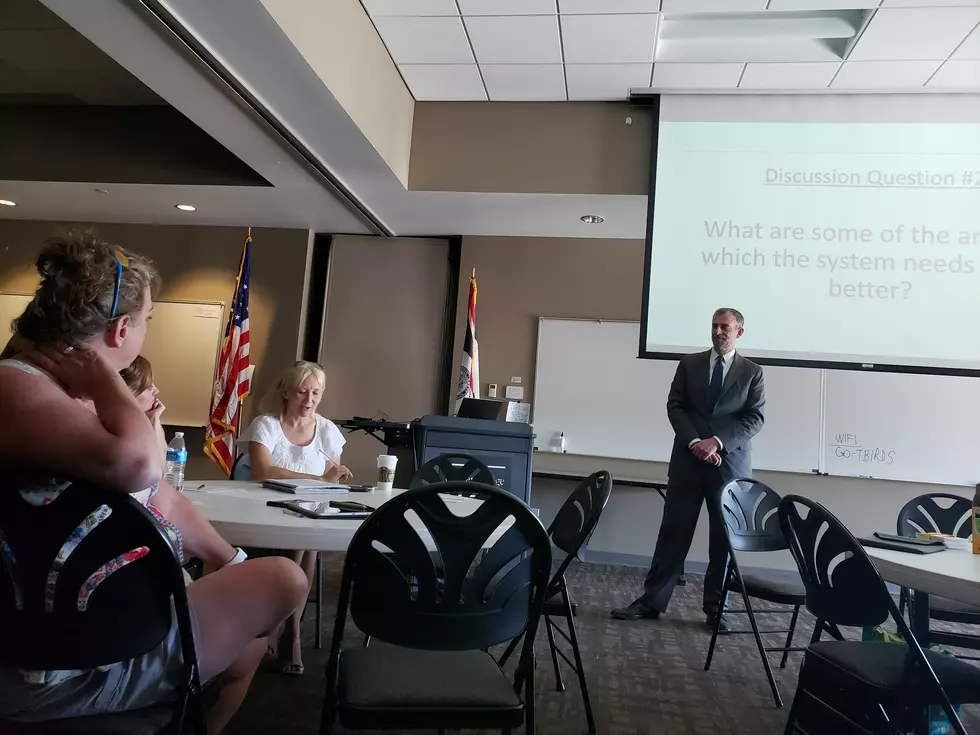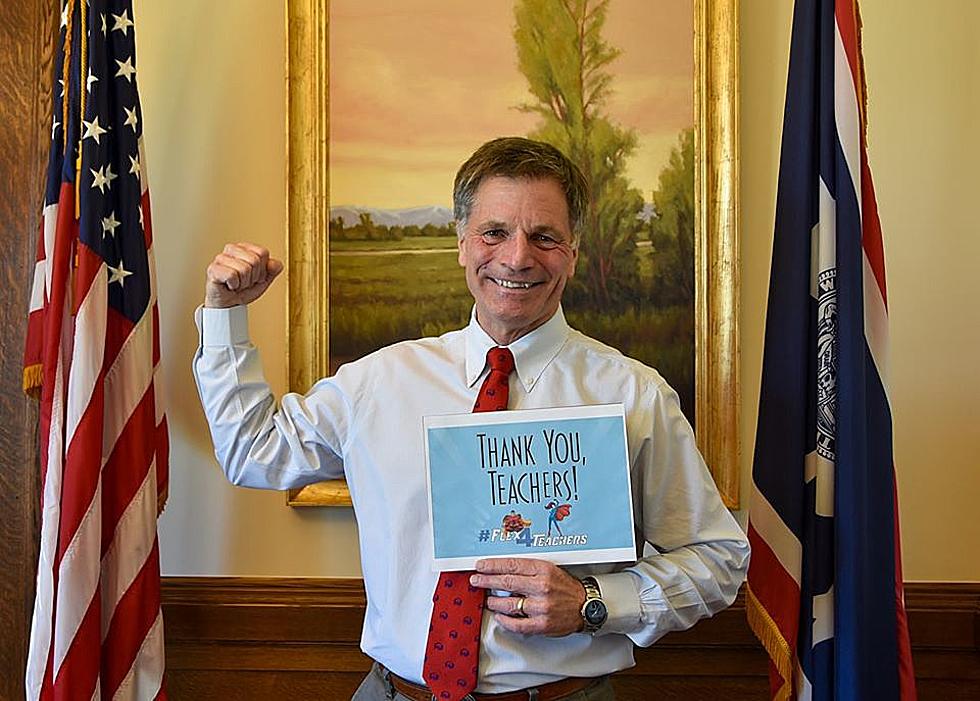
Gordon’s Education Group Holds Listening Session in Casper
On Thursday, Governor Mark Gordon's Reimagining and Innovating the Delivery of Education (RIDE) Advisory group held a forum for community members to talk about how to fix education in Wyoming.

At the session, of the 12 people that showed up, they broke off into groups and discussed three different questions: what do you like about the current system, what don't you like about the system, and what ideas do you have to make it better.
Those ideas included more resources for Career and Technical Education, less of an emphasis on testing, shouldering less of the burden onto teachers, letting students decide to continue school or not, giving parents a greater voice in education, and providing more school choice.
RIDE has had 10 listening sessions throughout the state in the past month, with four more planned, two in Cheyenne and two virtual ones.
John Masters, chair of the RIDE group, said that at the sessions he's been to, they've seen similar rates of attendance.
"We're still using a system from 150 years ago...we have a sense of equity in this country. Everyone gets to try everything whether they've done much to merit it," Masters said. "Those are competing and it's tough to prejudge somebody based on a test. You can't become an engineer because you didn't do well in eighth-grade math, that's a tough thing to say. I'm sure there are ways that people can come around in Europe, but that's kind of a barrier...We at least say we want to make sure everyone has equal opportunity, whether that's true or not. And Sergio could certainly tell you, I'm sure there are examples, certainly, on the reservation, kids did not have equal opportunities. And it's true for kids with special needs, handicap."
Elliot Regenstein, who gave the opening presentation at the listening session, said they appreciate the ideas people have offered but want people to remember that the solutions come from the existing system.
"We want to get your ideas for the big future of Wyoming education and in doing so we want to be very respectful of the people and systems that we have in place," Regenstein said. "That the teachers, the administrators, the parents, everybody, is making the best of what we have. Our question today is how can folks make the best of something different...There is not some completely different group of teachers sitting around waiting to do these jobs. We're talking about something that's largely going to be executed by many of the folks who are working in the system today, which is important and good."
Sergio Maldonado, a former teacher and current candidate for State Superintendent for Public Instruction, said there is a lack of trust in institutions among the tribal community in Wyoming.
"I'm Arapaho, I'm mixed blood Mexico-Arapaho, people are concerned about education, but for the past 100 years, being a marginalized community, there were laws that mean you couldn't leave the reservation, the theft of the religion, the theft of children for over 100 years in boarding schools," Maldonado said. "The notion of no trust is common...when you have a marginalized community you're placed on a reservation by 1890. You can't leave the reservation for fear of being shot, I mean literally shot. Civil rights were suppressed, religious rights were suppressed, and ceremony wasn't even around. Now you have 100 years of that. Do you think that we're going to trust the system? Even voting, people are concerned if they show up to vote, whether it be the sheriff there, tribal police there and they're gonna arrest them or hand them a warrant that's hanging over their head."
Maldonado said that he thinks a lack of spiritualism and community has led people to lose hope.
"If you don't have a spiritual connection, it just doesn't bode well. It doesn't mean that life's going to be easier, but it'll just be a little bit more difficult...I just maintain that some kind of spiritual relationship, however you want to construct it, using the words of the AA program, our relationship however you want to construct it, it offers you hope," Maldonado said. "And I just see this disillusion across America, even with tribal people, 'it's about me, it's all for me, to hell with everyone else.' They have hope, they're connected to the community, in tough times they have someone to go to."
Can You Identify the Correct Logo from Casper Businesses?
Former "Roosevelt High School" For Sale
More From K2 Radio









